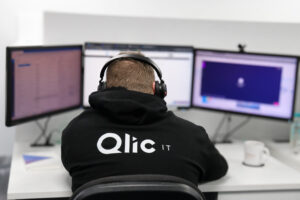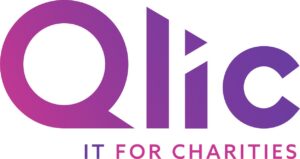
The rise of artificial intelligence (AI) has sparked transformative change across various industries, and the nonprofit sector is no exception. Although AI technology has quietly been in use for years, it has experienced a recent boom with the introduction of powerful yet user-friendly tools like ChatGPT and Google’s Gemini. These technologies are unlocking new possibilities for nonprofit organisations, particularly around fundraising. If you’re new to the potential of AI in the nonprofit world, this beginner’s guide to AI for charities is a great starting point.
Fundraising has always been the foundation of nonprofit success, but the challenge of securing donations has grown considerably. According to a recent Statista study, approximately 67% of people in England donated to charity in 2023/24, a sharp decline from 82% in 2013/14. The trend has been consistently downward, hitting a low of 63% in 2020/21.
With the rising cost of living and growing competition, charities must use every available resource to increase their donor prospects. One way to do this is by leveraging AI-powered tools like Microsoft Copilot for nonprofits. Microsoft Copilot can offer numerous benefits to charities, from assisting in drafting grant proposals to segmenting donors’ databases it can help organisations achieve their fundraising goals more quickly.
In this blog, we’ll explore the transformative potential of AI for fundraising. We’ll discuss practical tools and strategies for leveraging AI to maximise fundraising campaigns, examine real-world examples of AI success in the nonprofit sector, and provide actionable insights to help you raise money for your mission.
How Charities Can Leverage AI for Fundraising
There is no doubt that AI is transforming the way companies and nonprofit organisations operate. AI tools can be leveraged to support your charitable goals. Through data-driven decision-making, feedback analysis, and improved operational efficiency, nonprofits can harness AI to maximise their fundraising efforts in several impactful ways:
- Personalised and Improved Donor Experience
- Predictive Modelling for Targeted Campaigns
- AI Chatbots
- Enhanced Data Analysis and Decision-Making
- Content Creation
- Automating Routine Tasks
Personalised and Improved Donor Experience
- Personalised Campaigns: AI tools can help collect and analyse huge amounts of data. By analysing donors’ behaviour and preferences, you can personalize communication, email and fundraising campaigns, making outreach more relevant and engaging.
- Donor AI-Powered Segmentation: Advanced charity software can group donors based on their history, demographics, interests, and engagement patterns, enabling highly targeted donor communication.
- Mapping the Donor Journey: AI helps visualise and understand each stage of the donor lifecycle, ensuring timely interventions and sustained engagement.
Predictive Modelling for Targeted Campaigns
- Trend and Engagement Forecasting: AI tools analyse substantial data sets which can help charities predict future trends and donors’ engagement and anticipate giving patterns. Studies like this one from PLOS One and real-world applications such as Parkinson’s UK demonstrate how predictive modelling can improve fundraising strategies.
- Predictive Scoring for Giving Programs: AI can evaluate the potential success of annual giving, major donors’ behaviour, or planned giving programs.
- Business Simulation: By simulating how internal progress and external factors impact fundraising performance, predictive AI enables charities to prioritise high-ROI investments.
AI Chatbots
- Increased Engagement: AI chatbots interact with potential donors on websites and social media, answering questions and providing information 24/7.
- Cost Savings: By automating these interactions, chatbots save your charity money while improving customer service, donor satisfaction and engagement.
Enhanced Data Analysis and Decision-Making
- Data Mining: AI uncovers hidden patterns and insights in donor data, helping charities identify new opportunities, optimise their marketing strategy and maximise campaigns.
- Sentiment Analysis: By monitoring online conversations and social media, AI assesses public perception and identifies passionate potential donors.
Content Creation
Generative AI tools like ChatGPT are powerful tools for fundraisers to create content that is both engaging and more targeted. These tools are great for:
- Creativity and Brainstorming: Generating themes, slogans, and taglines for fundraising campaigns, as well as blog post ideas and email subject lines.
- Accelerating Research: Gather information on new topics to streamline the process of creating grant applications, award submissions, and blog research for your website.
- AI Generated Content: Draft social media posts, email campaigns, blog content, and even fundraising scripts. They can also be used to create workflows for better collaboration in your charity.
Automating Routine Tasks
AI shines at streamlining repetitive processes, which means improved efficiency and reduced costs.
- Data Entry and Management: Automate tasks like data entry, donor matching, and gift processing, freeing up staff for strategic initiatives.
- Campaign Management: Ensure consistent communication with donors by automating email campaigns, social media posts, and other marketing efforts.
By leveraging these AI capabilities, nonprofits can empower their fundraising communicators to connect more successfully with donors and achieve their mission with greater efficiency and impact.

AI and Fundraising: Challenges and Benefits
The adoption of AI for fundraising offers enormous potential but is not without its challenges. While AI offers great potential for enhancing fundraising, nonprofits often face several challenges in its implementation. Here are some of the most common obstacles and how organisations can address them:
Challenges Nonprofits Face in Adopting AI for Fundraising
- Choosing the Right AI Fundraising Platform: With a wide array of AI-powered tools available, selecting the right one can be overwhelming. It’s essential to choose a fundraising platform that aligns with your organisation’s goals and integrates seamlessly with existing systems.
- Training and Support: Implementing AI tools is only the first step. Charity teams require constant training and support to effectively use these technologies. Keeping staff updated on new features and functionalities ensures they can maximise the tools’ potential while adapting to changing fundraising strategies.
- Data Privacy and Security: Protecting donor data is critical when using AI. Nonprofits must comply with data privacy regulations, such as GDPR, to maintain trust and avoid legal pitfalls. This is why establishing a clear AI policy is essential to outline best practices, ensure ethical use, and safeguard data security. A good AI policy should provide a framework for AI implementation and help address concerns proactively.
- Bias in AI Systems: Improperly trained AI models can unintentionally reinforce biases, leading to unfair outcomes in content, donor targeting, or communication. As a charity, it’s important to prevent this from happening.
- Using AI Sustainably: While AI tools offer valuable benefits for charities, their environmental impact poses sustainability challenges. The energy consumption from running AI models, server usage, and data processing contributes to carbon emissions. Though individual charities typically have a smaller AI-related carbon footprint than large companies, they face difficulties in measuring their environmental impact and accessing energy-efficient solutions.
By addressing these challenges head-on, nonprofits can successfully incorporate AI into their operations, ensuring a smooth transition and unlocking the full potential of AI-powered fundraising tools.
Benefits
- Improved Efficiency: Automating routine tasks frees up staff time for strategic activities, increasing overall productivity.
- Enhanced Decision-Making: AI-powered insights help nonprofits make data-driven decisions, optimise campaigns, and uncover new opportunities.
- Personalised Engagement: By analysing donor behaviour, AI enables tailored communication, leading to higher donor satisfaction and retention.
- Cost Savings: AI tools can reduce operational costs, particularly through automation and improved resource allocation.
To address challenges and maximise the benefits of AI, nonprofits should adhere to AI best practices for charities. By doing so, they can implement AI correctly and successfully, ensuring it serves their mission while maintaining donor trust.
How to Get Started with AI for Fundraising
Integrating AI into your nonprofit’s fundraising strategy might seem intimidating, but with the right approach, it can be a seamless and rewarding process. Here are some practical steps to get started:
- Assess Your Needs: Begin by detecting the challenges your organisation faces in fundraising. Whether it’s donor retention, campaign optimisation, or data management, understanding your pain points will help you choose the right AI tools.
- Set Clear Goals: Define what you hope to achieve by using AI. This could include increasing donor retention rates, streamlining processes, or enhancing personalised communication. Clear objectives will guide your AI strategy and ensure measurable results.
- Choose the Right Tools: Research AI tools tailored for nonprofits, such as donor segmentation software, predictive analytics platforms, or AI chatbots. Start with solutions that address your immediate needs and are accessible for future growth.
- Train Your Team: Ensure that your staff understands how to use the selected AI tools effectively. Invest in training sessions or partner with experts to build your team’s certainty and ability.
- Start Small: Implement AI in one area of your fundraising strategy before increasing its use. For example, use an AI chatbot to handle donor inquiries or apply predictive analytics to a specific campaign. Starting small allows you to test the waters and refine your approach.
- Measure and Adjust: Regularly evaluate the impact of AI on your fundraising efforts. Use data and feedback to refine your processes and adjust where necessary to maximise ROI.
By taking these steps, nonprofits can successfully incorporate AI into their fundraising strategies, leveraging its transformative potential to achieve better results and greater impact.
Closing Thoughts
From increasing efficiency and improving donor relationships to generating higher revenue and enabling data-driven decision-making, AI offers numerous benefits that can empower charities to achieve their missions more successfully. However, it’s important to address challenges such as selecting the right tools, ensuring proper training and support, and continuing data privacy and security.
When used in a thoughtful and sustainable way, AI can become a strong asset in a nonprofit’s fundraising strategy.
To make the most of AI tools like Microsoft Copilot, having the right IT partner to guide you through the process is crucial. With expert guidance, your organisation can effortlessly integrate AI solutions and unlock their full potential.
Get in Touch
Would your charity like to explore how our fundraising software can help. Let us support you in leveraging AI to make a greater impact. Get in touch with the team at Qlic here.






